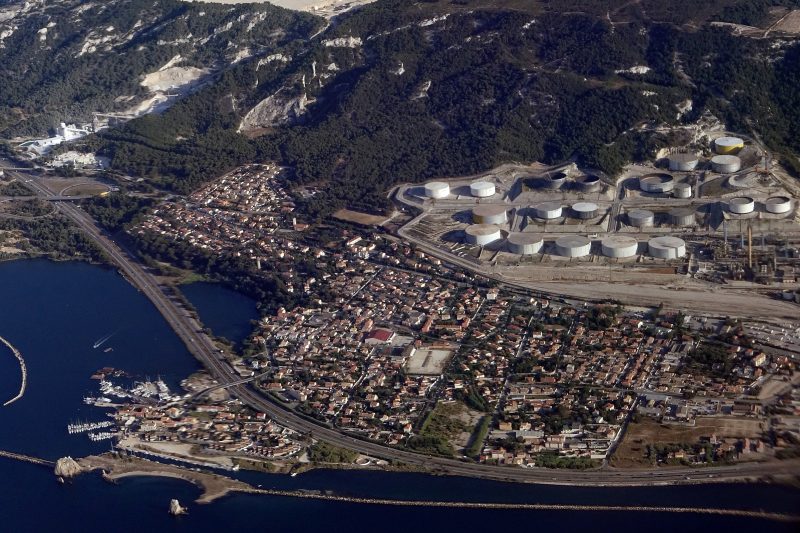Total starts production at French biofuel refinery
Total began converting its conventional refinery at La Mede in 2015, with the facility now producing biofuel
(Pascal POCHARD-CASABIANCA)
Paris (AFP) – Total on Wednesday said it had begun producing biofuel at a refinery in southern France, a project that has sparked an outcry from environmentalists and farmers over its plans to import palm oil.
The site at La Mede near Marseille is a former oil refinery which has been converted and is now one of the largest biorefineries in Europe.
Situated on the shore of the Berre reservoir, the facility has an annual production capacity of 500,000 tonnes of biodiesel, which includes biojet fuel for the aviation industry, the oil and gas giant said on Wednesday.
Now the biggest such facility in France, it ranks alongside large biofuel refineries run by Italy’s Eni and Neste Oil of Finland.
Biofuels are produced directly or indirectly from plant-based materials like vegetable oil or palm oil, which environmental activists blame for causing massive deforestation, chiefly in southeast Asia.
Total has said it wants to import up to 300,000 tonnes of palm oil a year in a move which has angered French rapeseed and sunflower growers.
Last month, farmers blockaded La Mede and 12 other refineries in protest over unfair competition, saying foreign producers were not subject to the regulations imposed on European producers.
Although Total has already pledged to use at least 50,000 tonnes of French rapeseed, also known as canola oil, as part of a total 650,000 tonnes that can be processed annually at La Mede.
The refinery has been designed to produce biofuels from various types of oils, 60-70 percent of which comes from raw vegetable oils such as rapeseed, sunflower, soybean, palm, corn or new plants such as carinata.
The remaining 30-40 percent will come from treated waste such as animal fats and cooking oil.
France’s biggest farmers’ union has called for a ban on palm oil imports.
Total began converting its La Mede refinery back in 2015 when the facility employed some 430 employees and was running at a loss because of overcapacity in Europe.
The French group said it had invested 275 million euros ($310 million) in the project, which would employ a total of 250 people. Production had been due to start last year but was delayed for “technical reasons” linked to the conversion process.
Disclaimer: Validity of the above story is for 7 Days from original date of publishing. Source: AFP.


